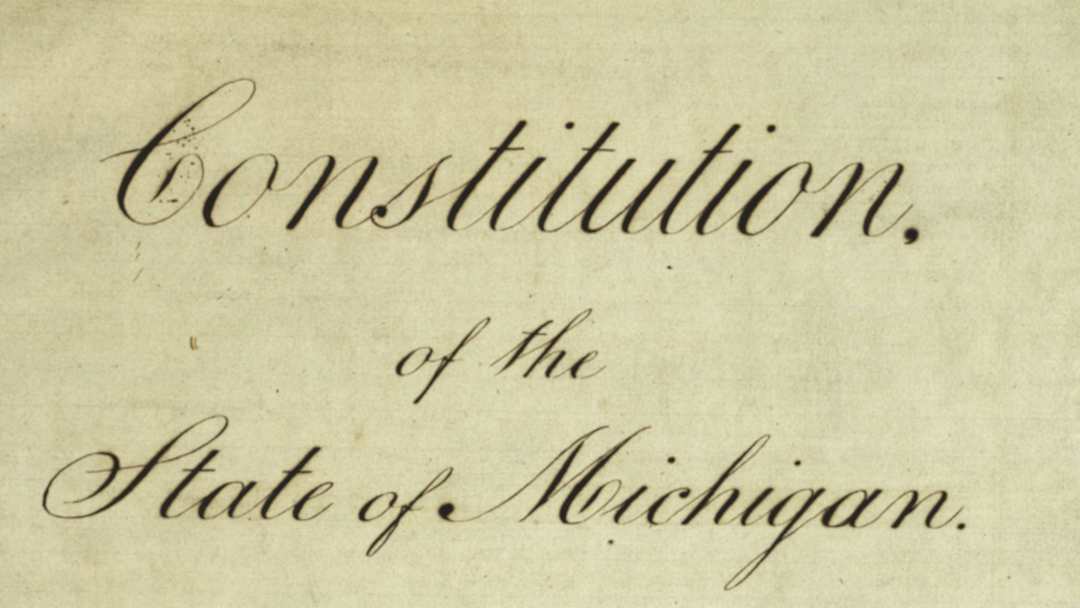These clauses protect property rights and maintain a balance between public needs and individual ownership
The Takings Clauses of the United States and Michigan Constitutions are pivotal components of property law, ensuring that private property is not seized by the government without fair compensation. These clauses protect property rights and maintain a balance between public needs and individual ownership.
United States Constitution: The Fifth Amendment
The Takings Clause is embedded in the Fifth Amendment of the U.S. Constitution, which states, “nor shall private property be taken for public use, without just compensation.” This clause has two primary components: public use and just compensation.
Public Use: The government can only take private property if it is for a public purpose. Historically, this meant projects like highways, schools, or public buildings. However, the interpretation has broadened over time. The landmark case Kelo v. City of New London (2005) expanded public use to include economic development, where the government justified the taking by claiming it would benefit the community economically (Michigan Public).
Just Compensation: The government must provide fair market value for the property taken. This is determined through an appraisal process, though disputes can arise regarding the value. The aim is to ensure the property owner is not financially disadvantaged by the taking.
Michigan Constitution: Article X, Section 2
The Michigan Constitution mirrors the Fifth Amendment’s Takings Clause with some distinct nuances. Article X, Section 2 states, “Private property shall not be taken for public use without just compensation therefor being first made or secured in a manner prescribed by law.”
Public Use: Michigan adheres to the federal standard of public use but has specific state-level interpretations and applications. Following the Hathcock v. Wayne County (2004) decision, Michigan imposed stricter limitations on takings for economic development compared to the broader interpretation allowed by Kelo at the federal level. Hathcock overturned previous rulings that permitted takings for economic development unless the project served a clear public interest, such as addressing blight (Michigan Public).
Just Compensation: Similar to the federal standard, Michigan requires fair market value compensation. The state also provides for additional compensation mechanisms, including potential reimbursement for relocation expenses in certain cases.
Legal and Social Implications
The Takings Clauses aim to protect individuals from the loss of property without proper cause or reimbursement, balancing individual rights with community needs. These clauses ensure that while the government can perform functions beneficial to the public, it cannot arbitrarily or unfairly deprive individuals of their property.
Controversies and Challenges
Broad Interpretation of Public Use: Cases like Kelo have sparked debates on the limits of public use, with critics arguing that broad interpretations can lead to abuse, where private property is taken for private development under the guise of public benefit.
Determination of Just Compensation: Disputes often arise over what constitutes fair market value, with property owners frequently contesting government appraisals.
State vs. Federal Standards: States can impose stricter standards than those set by federal rulings, as seen in Michigan’s response to economic development takings post-Hathcock. This creates a patchwork of interpretations and applications across the country, affecting property rights differently depending on the state.
Recent Developments
The Michigan Supreme Court’s recent ruling in Rafaeli, LLC v. Oakland County emphasized that surplus proceeds from tax-foreclosed property sales should return to former homeowners, underscoring the protection against governmental overreach and unjust enrichment. This ruling aligns with the principles of the Takings Clauses, ensuring fair treatment and compensation for property owners (Michigan Public).
Conclusion
The Takings Clauses of the United States and Michigan Constitutions serve as vital safeguards for property rights, mandating that any governmental taking of private property must be for a public use and with just compensation. These clauses continue to evolve through judicial interpretations and legislative adjustments, reflecting ongoing efforts to balance public interests with private property rights.
Read here:
Legal Counsel and Your Rights
When facing legal challenges, particularly in criminal cases, it is advisable to seek legal counsel immediately.
An experienced attorney can provide guidance on how to navigate interactions with law enforcement while safeguarding your constitutional rights.
Since 1993 our expert legal defense in navigating criminal law matters and protecting your constitutional rights are what we eat for breakfast everyday.
Contact Komorn Law PLLC if you’re ready to fight and win.
Research us and then call us.
More Rights You Should Know
No Results Found
The page you requested could not be found. Try refining your search, or use the navigation above to locate the post.

Supreme Court Ruling Strengthens First Amendment Protections: Implications for Michigan’s Threat Speech Laws
In a significant legal development, the United States Supreme Court has recently issued a ruling that has far-reaching implications for individuals facing charges related to "threat speech" in Michigan. The case of Counterman v. Colorado, decided on June 27, 2023,...
Other Articles
SCOTUS: No separate hearing required when police seize cars loaned to drivers accused of drug crimes
SCOTUS: When police seize cars loaned to drivers accused of drug crimes it does not necessitate a separate preliminary hearing.The U.S. Supreme Court has ruled against two women who loaned their cars to others arrested for drug crimes while using the vehicles, leading...
Traffic FAQs-Golf Carts-Mini Motorcycles-ATVs-Electric Scooters
Traffic FAQs - Golf Carts - Mini Motorcycles - ATVs - Electric Scooters Know the laws if you get pulled over. Know who to call if you need legal defense if a violation turns into a DUI or worse. That would be us. Question: We recently got “Bird” scooters (electric...
School district says marijuana-related incidents on the rise
School district reports an increase in marijuana-related incidents at schools and calls on leaders to take action.The Detroit Public Schools Community District has observed a substantial rise in the use of marijuana edibles and vape pens within schools. In light of...
Criminal Sexual Conduct (CSC) in Michigan
Criminal Sexual Conduct (CSC)Criminal sexual conduct (CSC) in Michigan refers to a range of sexual offenses that vary in severity based on factors like the nature of the act, the age of the victim, and whether force or coercion was involved.Michigan law categorizes...
A Victory for Cannabis Farming as Agriculture in Michigan
A Victory for Cannabis Farming as Agriculture in MichiganIn a landmark case that underscores the evolving landscape of cannabis regulation and taxation in agricultural contexts, HRP Cassopolis, LLC v LaGrange Township Assessor in Cass County, Michigan, has set a...
The Legal Significance of Marijuana Reclassification
The Impact of Marijuana Reclassification on Legal LandscapeOn May 6, 2024, the DEA made a groundbreaking decision, accepting the US Department of Health and Human Services' recommendation to reclassify marijuana from Schedule I to Schedule III controlled substance....
Traffic Laws FAQs – Speed and Speed Limits
Michigan Traffic FAQs - Speed/Speed Limits Know the laws before you make the call. Know the laws if you get pulled over. Know who to call if you need legal defense if a violation turns into a DUI or worse. Question: My Uncle has a country place that no one knows...
Traffic Laws FAQs – Cellphones
Michigan Traffic FAQs - Cellphones Know the laws before you make the call. Know the laws if you get pulled over. Know who to call if you need legal defense if a violation turns into a DUI or worse. Cell Phones Note: These are from the Traffic FAQs - For this subject...
















